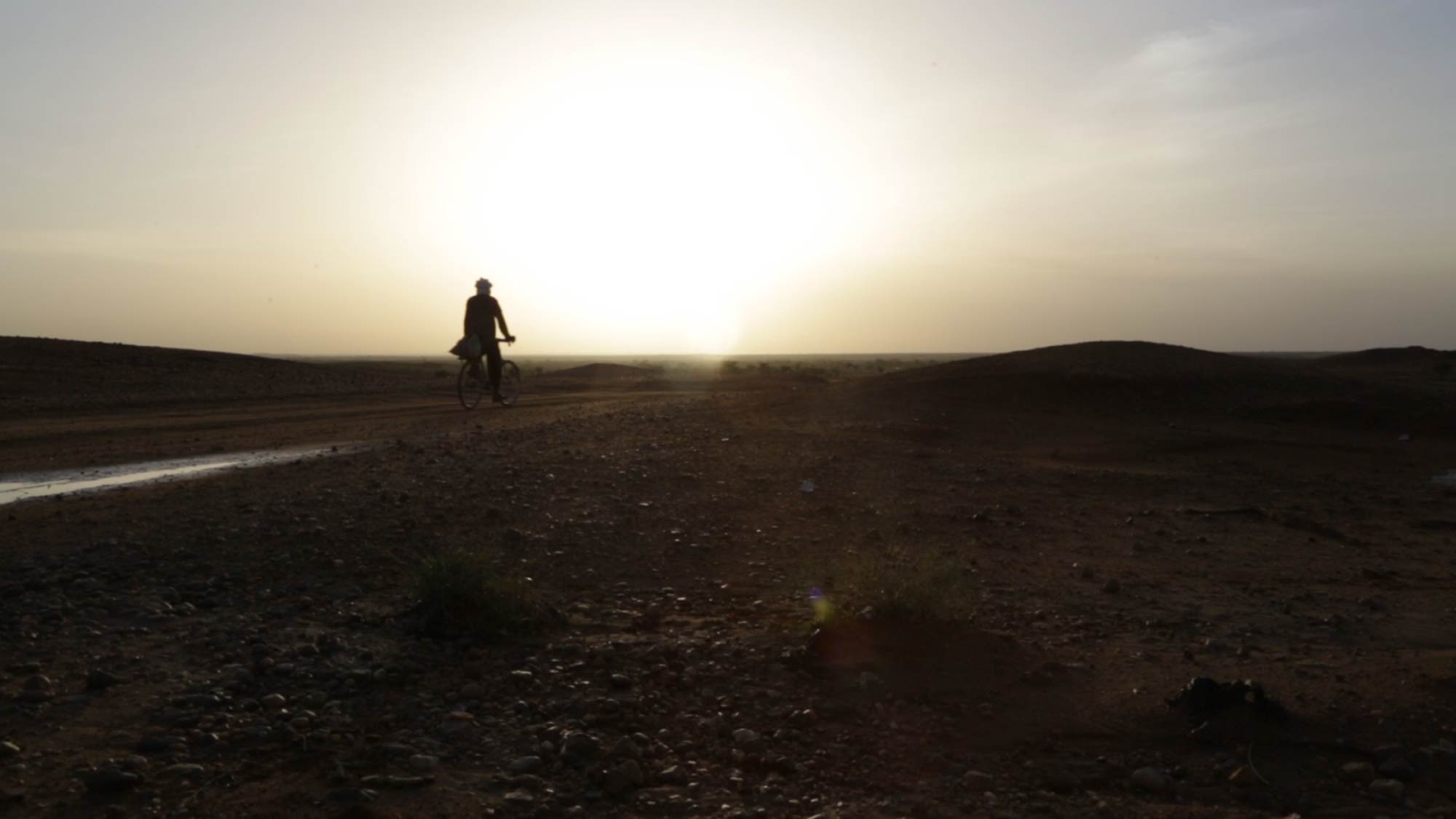It’s one thing to say you’re charging consumers more to help you ensure laborers and the environment are being treated fairly, and another to deliver on that promise. Amid reports of problems on some farms in Africa, marketing and auditing become important tools.
Strolling through the streets of Cologne, Germany, the city’s cathedral dominates the skyline. Likewise, in Europe, Germany dominates the marketplace for environmentally sensitive, ethically sourced food products that have come to be known as fair trade farming.
Cologne is headquarters of Fairtrade International, one of the most important bodies in that marketplace – and the body responsible for certifying that many fair trade products are sourced from farms that adhere to labor and environmental standards considered at least a step better than conventional producers. And few consumers are as supportive of those ethical standards than Germans. According to the European Parliament, Germans spent $625 million on fair trade products in 2012.
“I think there’s no right in the world that forever half of the world has to live and to work under conditions we would not accept in our countries,” said Dieter Overath, founder of TransFair, or Fairtrade Germany. For 25 years he’s been the organization’s CEO, and the most ardent defender of its model.
Overath wants Fairtrade’s push for ethical standards in farming to become a global battle cry for more equitable production chain. His plan? Get the logo known, one community at a time.
In Germany that means Fairtrade Towns, which began in 2009 and now include 500 towns. The crux of the campaign calls on Germans to pledge to “think globally, act locally” and commit to support fair-trade standards.
But even in activist Germany it has been difficult to make the fair trade concept ubiquitous, despite the public’s keen awareness of the issues surrounding social and environmentally friendly production and trade.
A four-year study by leading development economists at the University of London’s School of Oriental and African Studies found that Fairtrade certification did not significantly improve the lives of workers on fair trade farms.
“This research was unable to find any evidence that Fairtrade has made a positive difference to the wages and working conditions of those employed in the production of the commodities produced for Fairtrade-certified export in the areas where the research has been conducted,” said the report, which was funded by the British government’s Department for International Development. The report examined the economic impact of fair trade production in African countries with large populations of low-income workers.
“In some cases, indeed, the data suggest that those employed in areas where there are Fairtrade producer organisations are significantly worse paid, and treated, than those employed for wages in the production of the same commodities in areas without any Fairtrade certified institutions … ” the report concluded.
“At the very least, this research suggests that Fairtrade organisations need to pay far more attention to the conditions of those extremely poor rural people – especially women and girls – employed in the production of commodities labeled and sold to ‘ethical consumers,’ who expect their purchases to improve the lives of the poor,” the report said.
Fairtrade initially said that it had “welcomed” the research, but went on to criticize the report’s methodology, and to accuse the authors of bias. Fairtrade went so far as to issue “a vague threat of legal action,” according to a statement by the report’s authors, who defended their research methods and cited surveys of earlier research on Fairtrade that similarly showed no significant impact on working conditions.
In Germany the promise of fair trade has translated into rising sales for Fairtrade certified goods. Overath said that partnerships with discount supermarkets are highly successful, and spread awareness of Fairtrade values. As discount stores account for nearly 50 percent of food sales nationwide, with 92 percent of all people living in Germany going to a discount store once a week, these partnerships have proven themselves as vital to Fairtrade’s expansion into the German market.
Fairtrade Germany relies on a wholly-owned subsidiary, FLOCERT, to protect farmers abroad. The body, which Fairtrade describes as independently governed, is tasked with making sure producers receive a fair share of money paid to the cooperative as long as they meet Fairtrade’s standards. Most of FLOCERT’s staff – traders, importers, cooperatives and licensees — lives in producer countries.
Overath explained that cooperatives are supposed to decide collectively how to spend the Fairtrade premium.
“Our control is only to make sure there is a common decision and that the projects decided upon are actually put into action,” said Overath. “We don’t interfere. They can even decide to have a football field.”
But that promise is also the challenge: While they’re aware of the Fairtrade promise of ethical practices, German consumers have also heard stories that disturb them.
At a market in Cologne, a shopper named Anna said it’s important to support small farmers in developing countries and protect them from land-grabbers. And that’s why she was less confident in Fairtrade’s ability to deliver on its promises.
“I have heard inspections are often announced beforehand. It’s often but not always, so everything is quickly cleaned and the kids who potentially work in the fields are sent home. Everything is checked, it’s deemed good, and the Fairtrade logo stays,” she said.
The French Connection
Germans aren’t the only Europeans consumers who are enthusiastic supporters of Fairtrade products. From coffee to bananas, the French can’t get enough of fair trade. The country’s consumers spent $405 million on Fairtrade products in 2012.
In France, Fairtrade International is known as Max Havelaar. For Emilie Sarrazin-Biteye, the non-profit group’s president, the movement became popular in France because of a large push from civil society and the media.
“The average French person knows it’s a label and they know it’s good. The most work we have to do [from a campaign perspective] is to explain the motivation behind it, which is that producers are better paid,” she said.
Fairtrade arrived in France in 1992, when three other non-profit groups decided that French consumers needed ethical and sustainable alternatives for products grown abroad.
The movement is celebrated each year in the popular 15 Days for Fairtrade, which showcases products labeled ethical and sustainable. Max Havelaar France organizes workshops, festivals, pop-up villages and cafés, community dinners, concerts and movie screenings across the country to raise awareness about the movement.
Sarrazin-Biteye says she has seen its benefits in action.
“Fairtrade is essential for consumers because they know who produced their products,” she explained. “It is also beneficial for producers. It gives them a real space to sell their products and the objective is that they can have the means to live the life they want and guide the trading process.”
French enthusiasm for the Fairtrade brand was on display at the event in Paris. Passersby tried coffee and chocolate sourced from producers around the world and participated in activities designed to educate the public about the organization’s mission.
Elsa Bonnet said purchasing fair-trade products is a good way for Europeans to remember who makes their favorite items.
“I feel like I’m making a responsible gesture that will do something good for this world. I feel like a responsible citizen and I think of the people who are behind this label and I am happy to buy something that will help them,” she said.
Flavia Hofstetter, a working mother in her mid thirties, agrees with Bonnet, except for the pinch of the price tag.
“I feel better but poorer sometimes, because it’s not always easy to buy [fair trade],” said Hofstetter. “The products are a lot more expensive.”
Parting Of The Ways In The USA
Across the Atlantic, American consumers are also becoming more ethically minded when grocery shopping, according to recent data released by Fairtrade USA and the Natural Marketing Institute.
Consumer awareness is rising, with a reported sixty-seven percent of consumers recognizing the Fair Trade Certified seal, up from 59 percent in 2015. From 2015 to 2016, there was a 75 percent increase in newly released consumer packaged goods with the Fair Trade label.
Two of Fair Trade USA’s most popular retailers, Starbucks and Whole Foods Market, have openly shared their commitment to product origin and sustainable sourcing. Starbucks itself has pledged to buying 100 percent ethically sourced Fair Trade coffee.
Since 2012, Fair Trade USA has existed as its own independent label, following a break from the global organization Fairtrade International. Fair Trade USA declined to comment on problems emanating from some Fairtrade International farms in Africa. The US organization has said it split away to pursue more consistent applications of fair trade principals, to a greater farm population beyond selected cooperatives.
“Beginning in coffee, we are adapting Fair Trade standards for both workers on large farms and independent small holders.” The organization said in a statement published on its website. “Through this more inclusive model, Fair Trade USA can reach over 4 million farm workers who are currently excluded from the system.”
As a third-party certifier for more than 1,000 U.S companies, Fair Trade USA and its partnering certification bodies audit and certify supply chains, ensuring product compliance with Fairtrade International standards covering fair prices, wages and working conditions, along with sustainable farming practices to limit chemicals and protect the environment.
Fair Trade USA has historically focused on improving pay and working conditions in developing countries with the fewest legal protections, but has recently expanded programs to the Global North. Wholesome Harvest, a tomato farm in Amando, Arizona, is one such project paving this expansion. Because Fair Trade USA broadened certification eligibility to more estates, plantations and small-scale farms that are not organized into a co-op, their overall outreach differs from Fairtrade International, which restricts eligibility and focuses on particular crops and sectors.
This series was produced in collaboration with Journalists for Transparency, with support from Transparency International, the global anti-corruption organization.







